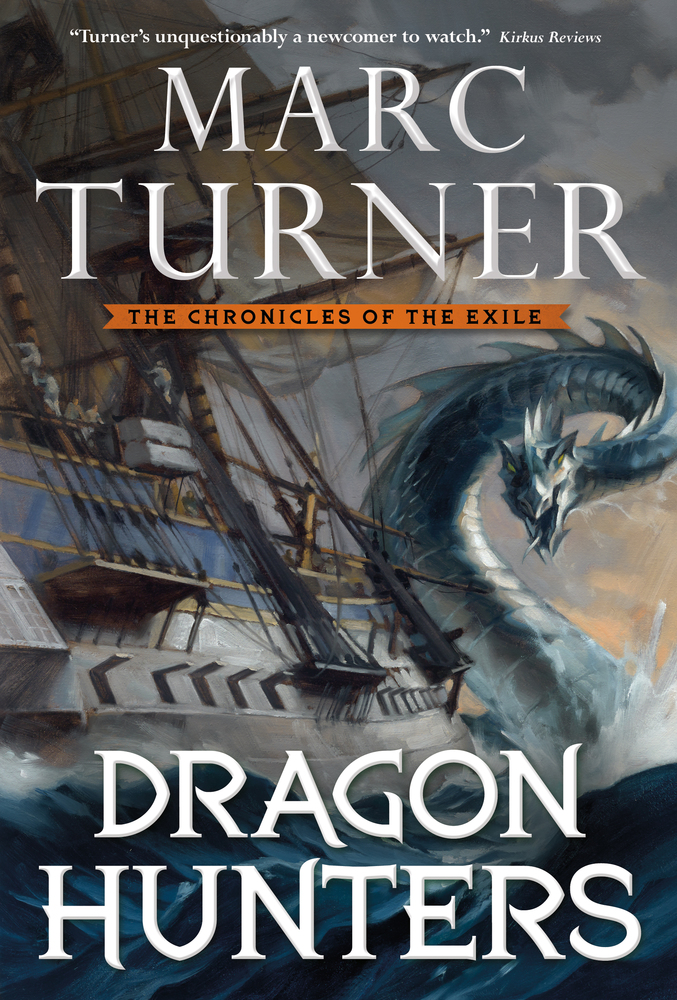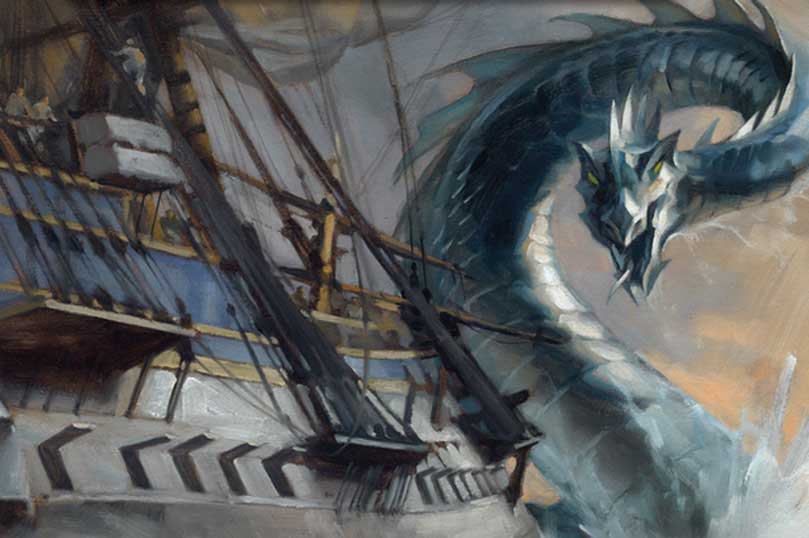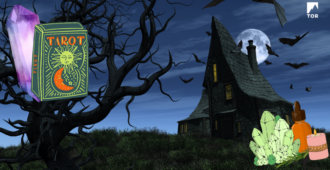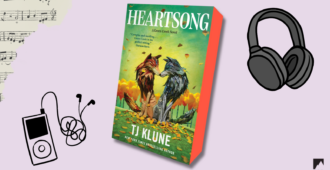opens in a new window
Written by opens in a new windowMarc Turner
When reading reviews of my debut, When the Heavens Fall, I’m always curious to find out which character was the reader’s favourite. My book features four point-of-view characters: two women and two men. They are all very different people, ranging from the steadfast but spirit-possessed prince, Ebon, to the hedonistic and charmingly ruthless priestess, Romany. There might just be a consensus forming as to who is the most popular, but even when readers agree on their favourite character, they rarely agree on the others.
I guess there is nothing surprising in this. We don’t all like the same characters in books just as we don’t all like the same people in life. What did surprise me, though, was the degree to which readers could disagree on the “merits” of a particular character. Take Romany, for example. opens in a new windowFantasy Book Review said the following about her: “Intelligent, cunning, immensely likeable, her affable irritation and eventual humanity in the face of the maelstrom of uber-fantasy is remarkably levelling.” A different reviewer, though, went so far as to call her evil. She can’t be both, can she? And if not, who is “right” about her? opens in a new window
It’s an important question for an author to consider. When I’m reading, if I don’t care about what happens to a book’s characters then I put the book down. I want a reason to cheer the characters on. In the “traditional” fantasy that I read as a teen, the writer tended to have an easier job of providing that reason because of the black and white complexion of their worlds. The protagonist was the Chosen One, the antagonist was the Dark Lord, and you’re never going to struggle to choose who to root for between those two, are you?
I prefer characters that are shades of grey, and grey certainly seems to be in fashion nowadays in epic fantasy. Take George RR Martin’s Game of Thrones, for example. When we first meet Jaime he is having sex with his sister and pushing a boy to his probable death from a tower window, but he has grown into one of my favourite characters. At times it can be hard in Martin’s books to distinguish the good guys from the bad. Actually that’s not quite true—you can tell the good guys apart on account of the fact that they’re all dead.
I like characters that have to battle against inner demons. I like characters that are facing decisions where the answers are far from clear, and where the consequences aren’t always what you expect. And what could be wrong with adding a few flaws to your characters, right? Think of your friends, your spouse, your parents. Are any of those people wholly without fault? Does that stop you caring about them?
Sometimes flaws can make your characters more sympathetic to a reader for a whole host of reasons. Generally, though, I think the more faults you give your characters, the harder it can be to win the reader’s sympathy for them. But it can be done. Consider Mark Lawrence’s The Broken Empire series. The main character, Jorg, is a thirteen-year-old sociopath, yet I still found myself rooting for him. What was it about Jorg that made me willing to spend time with him? What is the key to making an otherwise unsympathetic character sympathetic?
I asked Mark Lawrence that question in an opens in a new windowinterview I did with him earlier this year. His answer was: “Possibly it’s not caring whether you do [make them sympathetic] or not. I just aim to make characters interesting. Sympathy is over-rated.” Lawrence’s Jorg is certainly a fascinating character. Because of his age, I wanted to know the hows and whys of who he is. In Prince of Thorns, we learn that Jorg has been irreparably scarred from witnessing the murder of his mother and brother. This does not excuse the things he does in his pursuit of revenge, but at least it goes some way towards explaining them. And understanding an unsympathetic character is, I would argue, the first step to empathising with them. Would the readers who enjoyed Prince of Thorns have liked the book so much if they hadn’t been given that insight into Jorg’s background?
Another quality that might redeem an otherwise unsympathetic character is honesty. I’ve written opens in a new windowelsewhere about the positive changes in Jaime’s character that take place during A Storm of Swords on his journey with Brienne to King’s Landing. But I also want to mention the scene where he is sitting in White Sword Tower reading The Book of the Brothers. There, he remembers the time when he was with Ser Arthur Dayne, and he fought and killed the outlaw known as the Smiling Knight. “And me, that boy I was… When did he die, I wonder?… That boy had wanted to be Ser Arthur Dayne, but someplace along the way he had become the Smiling Knight instead.”
opens in a new window Jaime is honest about his faults, and with that honesty comes a sense that he wants to do better. He might stumble and fall on the road to redemption, but at least he is heading in the right direction. We are much more likely to sympathise with such a character, than one who refuses to acknowledge his shortcomings. Honesty is a technique I used to evoke sympathy for one of my characters, Parolla, in When the Heavens Fall. Parolla’s background is a mystery at the start of the book, but in time we learn that her parentage has left her with tainted blood. Sometimes the power carried on that blood slips her leash, but she never uses it as an excuse for her actions. Indeed, she tries to fight against her blood’s call, even as the darkness inside her begins to consume her.
Jaime is honest about his faults, and with that honesty comes a sense that he wants to do better. He might stumble and fall on the road to redemption, but at least he is heading in the right direction. We are much more likely to sympathise with such a character, than one who refuses to acknowledge his shortcomings. Honesty is a technique I used to evoke sympathy for one of my characters, Parolla, in When the Heavens Fall. Parolla’s background is a mystery at the start of the book, but in time we learn that her parentage has left her with tainted blood. Sometimes the power carried on that blood slips her leash, but she never uses it as an excuse for her actions. Indeed, she tries to fight against her blood’s call, even as the darkness inside her begins to consume her.
A third consideration is humour. I recall reading an interview by Joe Abercrombie in which he said that people will forgive a lot in someone who can make them laugh. I agree. My favourite character in Abercrombie’s The First Law series, Glokta, is a ruthless torturer. He’s also very funny, and that made the scenes in which he features enjoyable to read. In Glokta’s case, the humour is often doubly appealing because it is self-deprecating. That indicates modesty, together with a sense of the honesty I referred to above.
There are other ways to provoke sympathy for a character, such as making them relatable to the reader, or vulnerable, or just setting them at odds with a character they like even less! There is a danger, though, in trying to make your characters too sympathetic. As my editor once put it, in seeking to make a character more likeable you might strip them of their “edge”. Taken to extremes, you could end up with a Mary Sue or a Gary Stu, too perfect to be realistic or interesting. And, of course, a change that makes a character more appealing to one reader might make them less appealing to another.
A lot is down to a reader’s individual preferences, which is why we should be careful against equating “I didn’t like this character” with “This character is a poor character”. It’s also why I’m so surprised when I hear someone pronounce that a particular character is “unlikeable”, as if the final decision were theirs.
So now it’s over to you. Which is the most disagreeable character you have found yourself rooting for in a book, and what was it that made you sympathise with them?
Buy Dragon Hunters today:
opens in a new windowAmazon | opens in a new windowBarnes & Noble | opens in a new windowBooks-a-Million | opens in a new windowiBooks | opens in a new windowIndiebound | opens in a new windowPowell’s
Follow Marc Turner on Twitter at opens in a new window@MarcJTurner and on his opens in a new windowwebsite.






